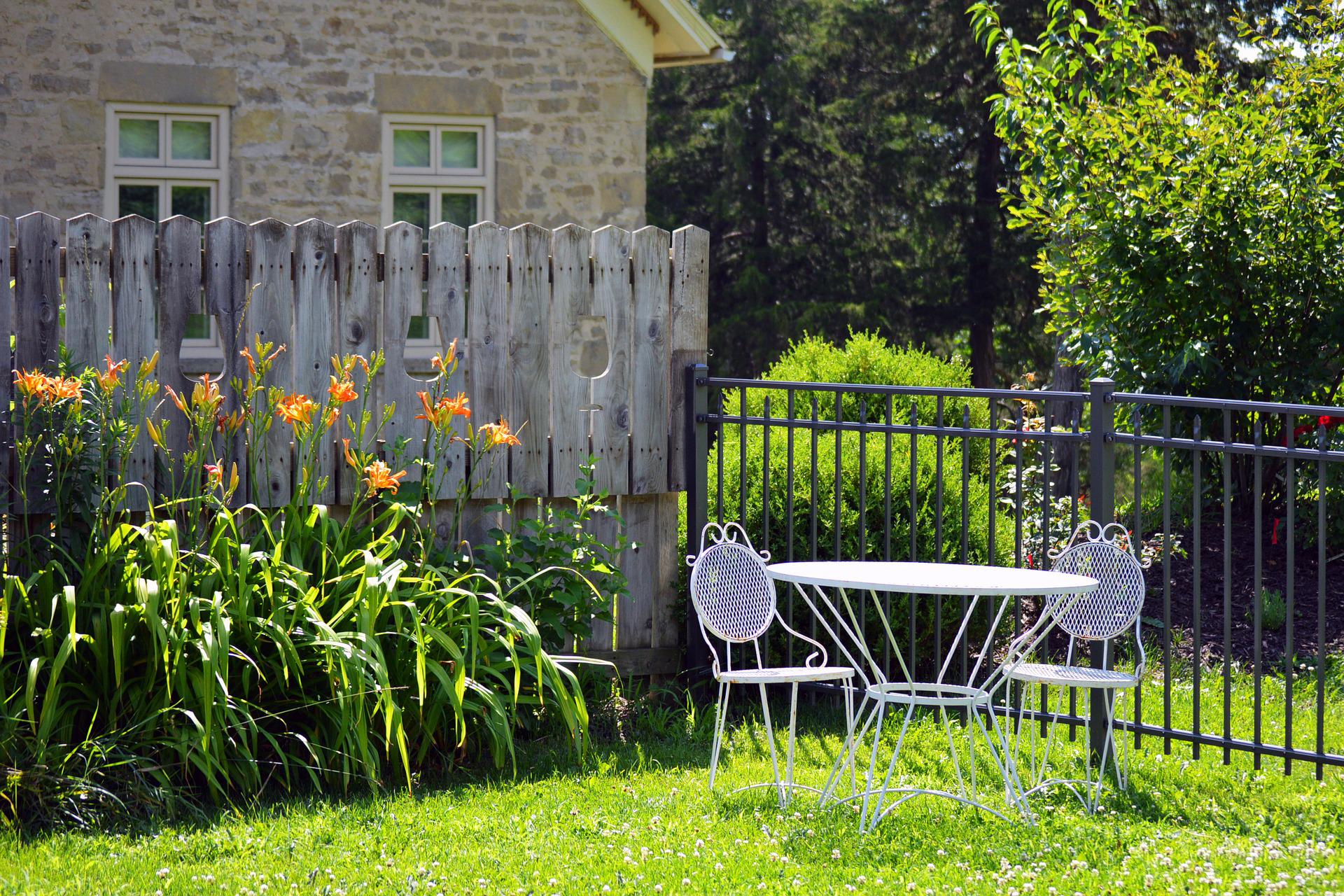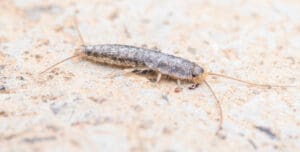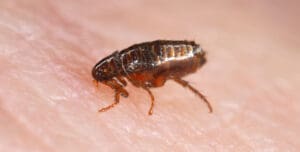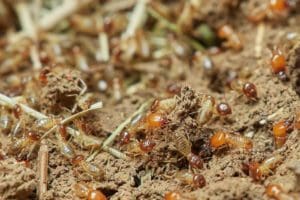

You’re enjoying a warm and peaceful summer’s evening, when the quiet is spoiled by a whining, buzzing nuisance zooming about your face: the dreaded mosquito has come to ruin your precious leisure time.
The itchy bites and disruptive buzzing are sufficient to push anyone but the most ardent nature-lovers back indoors for refuge. Above and beyond their profoundly irritating presence, many mosquito species transmit potentially-fatal diseases and pose a serious risk to public health if populations are left to thrive unchecked. Mosquitoes transmit dengue and yellow fever, malaria, and the West Nile and Zika viruses, to name a few.
Considering this, you should always take the presence of a mosquito infestation on your property very seriously. By investing in the correct mosquito management and treatment steps, everyone and anyone can keep these pesky pests from getting out of control and reclaim their peace and quiet.
 Mosquitoes thrive outdoors in the cool shade of the summer heat; the absolute last thing you want is to give them a place to rest and/or reproduce. It is worth taking some time and spending some money on putting preventive pest control tactics in place. By going through your property and identifying areas of concern and taking care of them, you’ll be on your way to regaining your peaceful paradise. If you do this on a regular basis, you’ll be ensuring that you won’t allow a pest problem to crop up again in the future.
There are also plants you can add to your yard to deter mosquitoes. Basil, citronella, rosemary, and lemon thyme are fragrant and beautiful and thrive in sunny window gardens, and vivid marigolds and lavender add a colorful touch to any outdoor space.
Mosquitoes thrive outdoors in the cool shade of the summer heat; the absolute last thing you want is to give them a place to rest and/or reproduce. It is worth taking some time and spending some money on putting preventive pest control tactics in place. By going through your property and identifying areas of concern and taking care of them, you’ll be on your way to regaining your peaceful paradise. If you do this on a regular basis, you’ll be ensuring that you won’t allow a pest problem to crop up again in the future.
There are also plants you can add to your yard to deter mosquitoes. Basil, citronella, rosemary, and lemon thyme are fragrant and beautiful and thrive in sunny window gardens, and vivid marigolds and lavender add a colorful touch to any outdoor space.
 After a heavy rainstorm, take a walk around your property and note if there are any areas where water is pooling. These low-lying areas of the yard might need a little extra dirt or mulch to ensure that water drains evenly after a storm. If that doesn’t work and you find that there are any stubborn areas where water pooling persists, we recommend that you speak to a landscaping expert to see what your options are for dealing with these persistent drainage problems.
Water levels and water drainage has a significant influence on the number of mosquitoes that you will see, hear, and indeed, feel around your yard or outdoor space in the months to come.
After a heavy rainstorm, take a walk around your property and note if there are any areas where water is pooling. These low-lying areas of the yard might need a little extra dirt or mulch to ensure that water drains evenly after a storm. If that doesn’t work and you find that there are any stubborn areas where water pooling persists, we recommend that you speak to a landscaping expert to see what your options are for dealing with these persistent drainage problems.
Water levels and water drainage has a significant influence on the number of mosquitoes that you will see, hear, and indeed, feel around your yard or outdoor space in the months to come.
Preventive Pest Control Tip: Become The Master Of Your Outdoor Space
Mosquitos prefer to lay their eggs in overgrown areas- keeping your lawn trimmed is important to keep them from getting a toehold. You should also trim back any bushes or trees. Essentially, it is most important to make sure that you don’t let any of the vegetation grow out of control in your yard or outdoor space. Mosquitoes thrive outdoors in the cool shade of the summer heat; the absolute last thing you want is to give them a place to rest and/or reproduce. It is worth taking some time and spending some money on putting preventive pest control tactics in place. By going through your property and identifying areas of concern and taking care of them, you’ll be on your way to regaining your peaceful paradise. If you do this on a regular basis, you’ll be ensuring that you won’t allow a pest problem to crop up again in the future.
There are also plants you can add to your yard to deter mosquitoes. Basil, citronella, rosemary, and lemon thyme are fragrant and beautiful and thrive in sunny window gardens, and vivid marigolds and lavender add a colorful touch to any outdoor space.
Mosquitoes thrive outdoors in the cool shade of the summer heat; the absolute last thing you want is to give them a place to rest and/or reproduce. It is worth taking some time and spending some money on putting preventive pest control tactics in place. By going through your property and identifying areas of concern and taking care of them, you’ll be on your way to regaining your peaceful paradise. If you do this on a regular basis, you’ll be ensuring that you won’t allow a pest problem to crop up again in the future.
There are also plants you can add to your yard to deter mosquitoes. Basil, citronella, rosemary, and lemon thyme are fragrant and beautiful and thrive in sunny window gardens, and vivid marigolds and lavender add a colorful touch to any outdoor space.
Mosquito Management Tip: Drain Any Stagnant Or Standing Water On Your Property
Mosquitoes love to lay their eggs in moist or humid areas, so pools of stagnant water are their ideal breeding ground. When you take steps to dry up these areas, you dramatically cut back on the magnitude of mosquito infestations that you’ll see and hear around your outdoor space. Make sure that you get rid of any rubbish, detritus or other large items in which water might pool and become fetid, such as children’s toys, water fountains, wading pools and garden decorations. After a heavy rainstorm, take a walk around your property and note if there are any areas where water is pooling. These low-lying areas of the yard might need a little extra dirt or mulch to ensure that water drains evenly after a storm. If that doesn’t work and you find that there are any stubborn areas where water pooling persists, we recommend that you speak to a landscaping expert to see what your options are for dealing with these persistent drainage problems.
Water levels and water drainage has a significant influence on the number of mosquitoes that you will see, hear, and indeed, feel around your yard or outdoor space in the months to come.
After a heavy rainstorm, take a walk around your property and note if there are any areas where water is pooling. These low-lying areas of the yard might need a little extra dirt or mulch to ensure that water drains evenly after a storm. If that doesn’t work and you find that there are any stubborn areas where water pooling persists, we recommend that you speak to a landscaping expert to see what your options are for dealing with these persistent drainage problems.
Water levels and water drainage has a significant influence on the number of mosquitoes that you will see, hear, and indeed, feel around your yard or outdoor space in the months to come.






